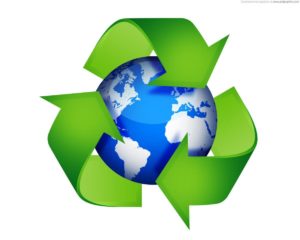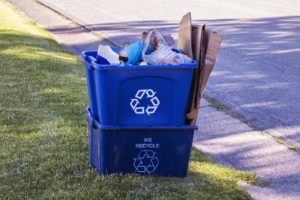 I wanted to take a little break from our history lessons, to address another subject today. When Tom and I are in Georgia we struggle to recycle. Recycling is very important to us and we have a hard time throwing things out that we know should be recycled. Georgia doesn’t do much recycling. In fact, cardboard seems to be the only thing that doesn’t regularly get hauled to the landfill.
I wanted to take a little break from our history lessons, to address another subject today. When Tom and I are in Georgia we struggle to recycle. Recycling is very important to us and we have a hard time throwing things out that we know should be recycled. Georgia doesn’t do much recycling. In fact, cardboard seems to be the only thing that doesn’t regularly get hauled to the landfill.
But the situation isn’t much better in other parts of the country. Western Pennsylvania also struggles to recycle. Although the National Park Service is committed to recycling, they have an increasingly difficult time finding anyone to take the recycling.
I recently read an excellent news article from The Atlantic that explain some of the recycling difficulties, “Is This the End of Recycling?” This article explained that China used to receive most of the recyclables from the United States. But, thanks to President Trump’s trade war, China is now refusing to accept our recyclables. Subsequently, American cities don’t have anywhere to send the tons of curbside recycling. We finally get people trained to recycle and there isn’t a market for the recyclables.
 Municipalities have the choice of paying higher prices to get rid of recyclables or throwing them away. Most are choosing the latter without telling the public about it. The cost of getting rid of a ton of recyclables has gone from $6 to $125 in less than two years. Businesses in the United States are not buying recyclables because it is cheaper to use virgin plastic and paper than it is to use recycled materials. As long as we insist on buying the cheapest things, companies have no incentive to use recycled materials.
Municipalities have the choice of paying higher prices to get rid of recyclables or throwing them away. Most are choosing the latter without telling the public about it. The cost of getting rid of a ton of recyclables has gone from $6 to $125 in less than two years. Businesses in the United States are not buying recyclables because it is cheaper to use virgin plastic and paper than it is to use recycled materials. As long as we insist on buying the cheapest things, companies have no incentive to use recycled materials.
Despite the increased amount of recycling, Americans are still terrible at it. We don’t properly wash or rinse containers before throwing them in the recycling bin. We put in plastic film or plastic bags that are not recyclable. Pizza boxes and freezer boxes (unrecyclable) are added to cardboard and paper that is recyclable. And people aren’t willing to work at sorting recycling for the minimum wages companies can pay them.
All of this concerns me very much. I don’t want to throw my recyclables into the trash – I want to know they are used again. In any given week, Tom and I generate three times as much trash that could be recycled than trash that goes in the garbage. So, what can I do to be more environmentally responsible? What can you do to be less of a consumer?
I will continue this discussion tomorrow.
